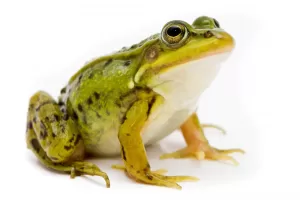How do I get rid of hiccups?
What causes hiccups?
- The diaphragm is a sheet of muscle that separates your chest from your abdomen.
- It is the main muscle involved in breathing.
- Hiccups are caused by sudden contractions in the diaphragm- these movements are involuntary, occurring beyond your conscious control.
- Air is sucked rapidly into your lungs, and around a quarter of a second later your voicebox slams shut, causing the typical “hic” sound.
Do hiccups have a function?
- We don’t really know why humans gets hiccups in the first place, but there are some interesting theories.
- Hiccups are only found in milk-drinking mammals and are much more common in infants- some researchers think hiccups evolved to allow babies empty swallowed air from their stomachs while feeding. Nature’s way of helping them “burp” themselves and happily continue their feed!
- Others believe it may go back to our ancient genetic past, as amphibians such as tadpoles gulp water and air across their gills in an action similar to hiccup-ing.
What triggers hiccups?
Though we may not know the exact reason hiccups exist, we do know there are many triggers and causes of hiccups, ranging from simple to serious. Simple triggers include:
- Coughing
- Laughing
- Swallowing air or eating too quickly
- Acid reflux or having a hiatus hernia
- Fizzy drinks
- Intense emotions
Serious causes of hiccups
More serious causes are rare. Conditions that affect the electrolyte (salt) balance in the body, or any chest conditions that irritate or injure the diaphragm (or its nerve supply) can be to blame, as they affect the activity of the nerves and muscles involved. These issues have the potential to cause longer-lasting or “chronic” hiccups, which can persist for days or even weeks, and include
- Kidney failure
- Diabetes (particularly if poorly controlled)
- Stroke
- Multiple Sclerosis (M.S) and other neurological conditions
- Chest infections
- Medications such as opiates (morphine-like drugs), epilepsy drugs, steroids and others
What is the best treatment for hiccups?
So, how do you get rid of hiccups?
- Short term bouts of hiccups will usually get better by themselves.
- Of course, there are many interesting “home remedies”, many of which try to break the nerve reflex driving the hiccups.
- Such cures include giving the sufferer a fright, drinking water “upside down”/ from the wrong side of a cup, swallowing crushed ice, holding your breath or doing a headstand.
- The success of these strategies is not clear!
Chronic hiccups
- Chronic (long term) hiccups can be a challenge to treat.
- If there is an underlying condition, such as kidney failure or acid reflux, treating that appropriately may solve the problem.
- If hiccups are ongoing, a variety of medical treatments may be considered- these include medications, surgery, anaesthetic injections and implantable nerve stimulators.
- It’s not clear how effective these treatments are.
- One odd approach that does seem to be quite effective is massage of the rectum (back passage), as it triggers a nerve reflex that can stop hiccups- however this is obviously a rather invasive and unpleasant option!
Anyone with hiccups ongoing for longer than expected should see their doctor to have an examination and bloods tests. However, if also feeling generally unwell, immediate medical attention is advisable, as there are some serious causes, as noted above.
Getting a Mental Health Care Plan in Australia: Your Guide
Getting a Mental Health Care Plan in Australia: Your Guide Mental health matters—and if you’re feeling overwhelmed, anxious, or down, a mental health care plan can help. But what is it, and how do [...]
UTI Symptoms and Treatment: What You Need to Know
UTI Symptoms and Treatment: What You Need to Know Urinary Tract Infections (UTIs) are common, uncomfortable, and often disruptive. But what exactly are the signs to watch for, and how can you get relief [...]
Free Mental Health Care Plan Online | Bulk-Billed by Qoctor
Free Mental Health Care Plan Online | Bulk-Billed by Qoctor Discover how to get a free, bulk-billed Mental Health Care Plan (MHCP) in Australia through Qoctor's telehealth service. Accessing [...]






